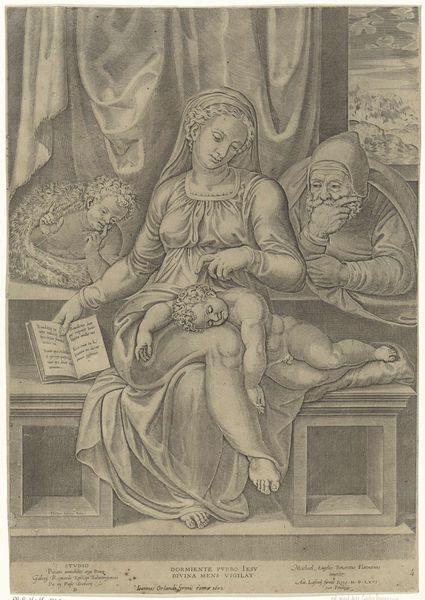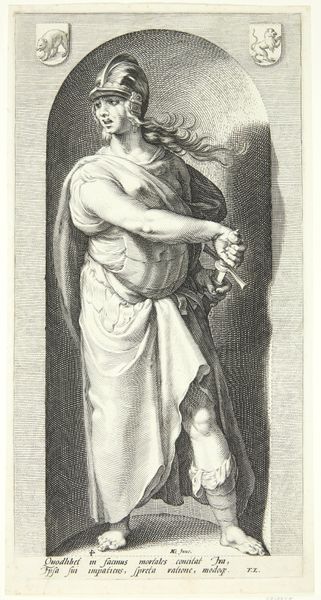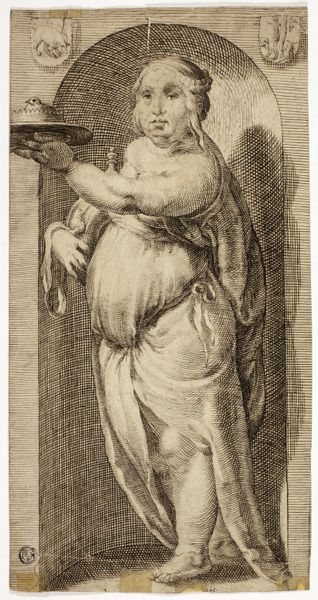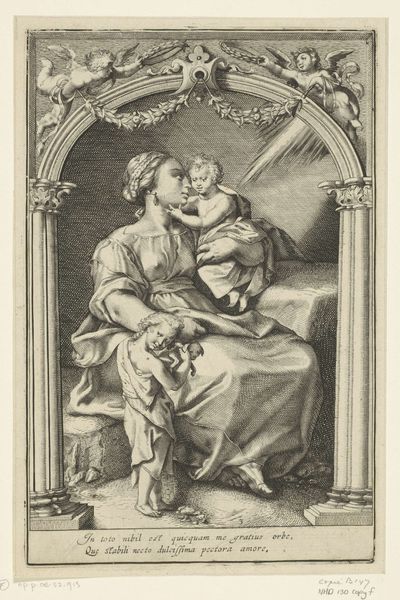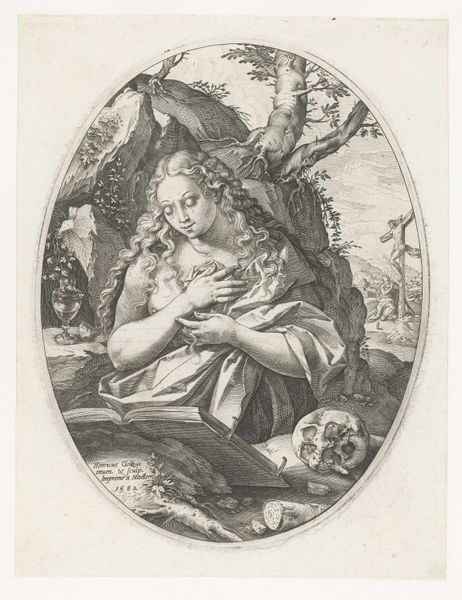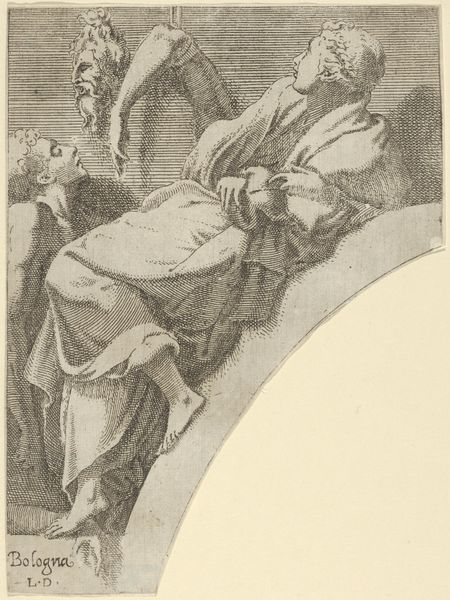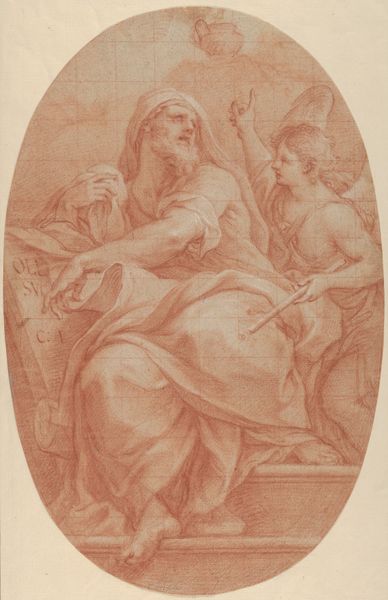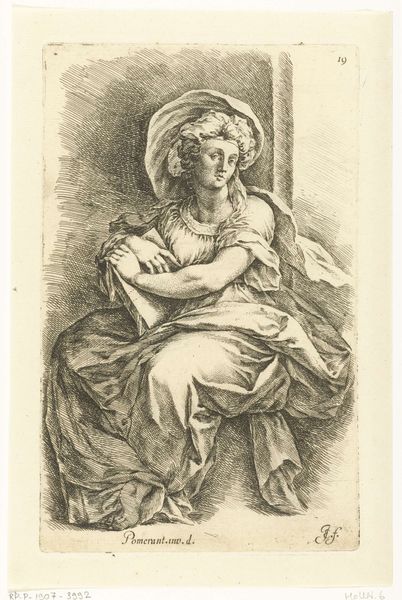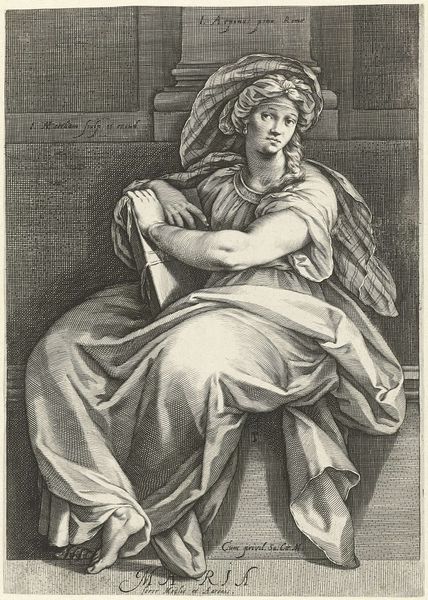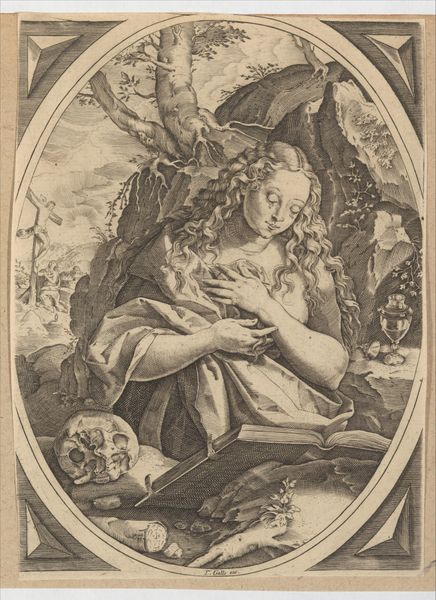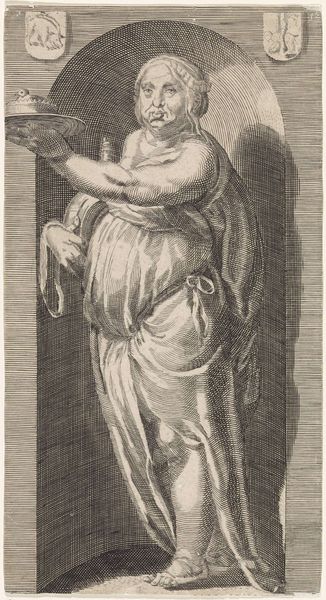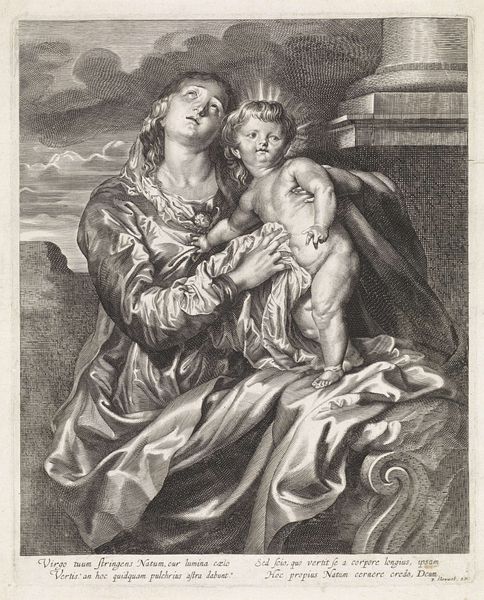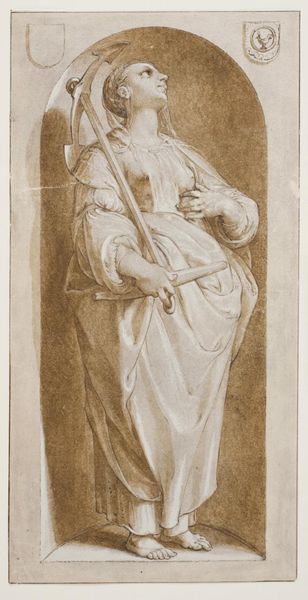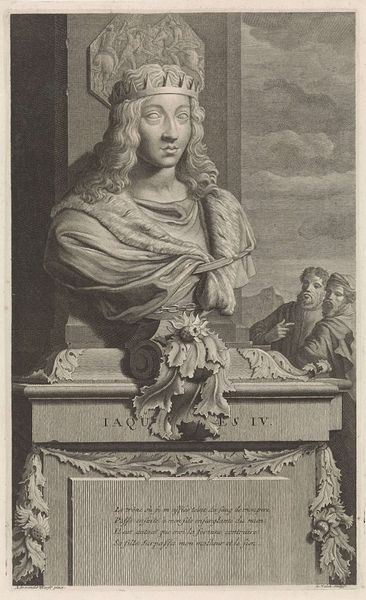
engraving
#
portrait
#
allegory
#
baroque
#
dutch-golden-age
#
figuration
#
momento-mori
#
line
#
history-painting
#
engraving
Dimensions: height 300 mm, width 245 mm
Copyright: Rijks Museum: Open Domain
Arnold de Jode etched this depiction of Maria Magdalena with a skull in the mid-17th century. Here, the skull is not merely a memento mori, a reminder of death, but a profound symbol of transformation. Consider how the skull has appeared throughout art history, from ancient Roman funerary art to the danse macabre of the Middle Ages. In each instance, it carries echoes of mortality, yet its meaning shifts. Notice how the saint gazes at the skull, her face a mask of grief. The skull's empty eyes seem to challenge us, stirring deep subconscious fears about our own mortality and prompting a moment of self-reflection. The penitent Mary Magdalene, contemplating the skull, connects to a long, cyclical tradition of vanitas imagery. This symbol, embraced and reshaped across time, embodies our perennial dance with death and the ephemeral nature of earthly existence.
Comments
No comments
Be the first to comment and join the conversation on the ultimate creative platform.
